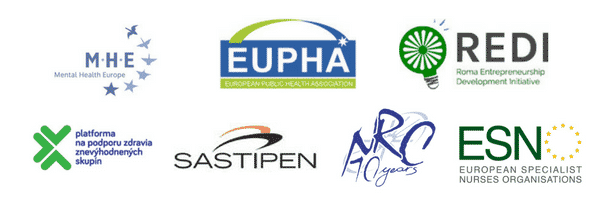STATEMENT TO THE EUROPEAN COMMISSION ON THE PUBLIC CONSULTATION ON THE EVALUATION OF THE EU FRAMEWORK FOR NATIONAL ROMA INTEGRATION STRATEGIES UP TO 2020
27th October 2017 – We, 50 undersigned organisations, welcome the opportunity to contribute to the public consultation on the evaluation of the EU Framework for National Roma Integration Strategies as one of the steps needed to make the voice of Roma heard.
It is crucial that the European Commission keeps its focus on Roma inclusion and that the new emerging issues do not push Roma off the agendas of EU national governments. Given the cross-border elements of Roma inclusion, it is important to recognize that no individual country can cope with the challenges of Roma exclusion. Only a coordinated effort at the EU level reaching all the way to the local level can bring a real and visible progress.
We appreciate that the voice of Roma civil society, including Roma individuals, was heard in the process of the public consultation. However, we would like to highlight that the years of exclusion and the resulting frustration may have prevented many Roma from voicing their concerns. It is extremely important that other means are used to ensure that the voice of Roma is heard and reflected, including the young children and their families.
With this letter, we would like to also express our availability for further consultations. We are available to provide additional details, mainly in the area of Early Childhood Development and Health, but also in other areas which directly influence young children and their families.
This statement is supported by:
Association for Partnership and Regional Development (ApDRP)
Association for Culture, Education and Communication (ACEC)
Association for the Protection of Roma Rights (APDRR)
Asociatia pentru Dezvoltare Regionala si Parteneriat (APDRP)
Asociatia Romilor Fratia
Centre of Resources for Social Inclusion CRIS
European Academy of Paediatrics
European Institute of Womens Health
European Network for Smoking and Tobacco Prevention (ENSP)
European Federation of National Organisations Working with the Homeless (FEANTSA)
European Public Health Alliance (EPHA)
European Public Health Association (EUPHA)
European Roma Information Office
European Roma Rights Centre (ERRC)
Hungarian Civil Liberties Union
Institute for Policy Development
Institute for Youth Participation, Health and Sustainable Development
International Agency for the Prevention of Blindness (IAPB)
International Federation of Medical Students’ Associations
International Step by Step Association (ISSA)
Partida Romilor Din Dragasani Jud Valcea
Platform for Support of the Health of Disadvantaged Groups (PPZZS)
Roma Entrepreneurship Development Initiative (REDI)
Romani Early Years Network (REYN)
Simian Association for Community Development (ADCS)
Step by Step Centre for Quality in Education, Educational Research Institute
Uniunea Nationala a Comunitatilor de Rromi



Note to Editors
On 19th July 2017, the European Commission published the Public Consultation on the Evaluation of the EU Framework for National Roma Integration Strategies (NRIS) up to 2020, for the external evaluation of the EU NRIS, which ended on 25th October.
The importance of Roma Health was already recently highlighted, by a joint statement of Roma, pro-Roma and Public Health NGOs. As a follow up, the European Public Health Alliance (EPHA) pulled together an ad-hoc coalition of Roma and pro-Roma stakeholders, and engaged with Roma at local and community level. NGOs being part of this process collectively contributed to the public consultation from a Roma Health and Early Childhood Development perspective.
The coordinated input of all involved organisations were based on an explanatory analysis which was carried out to map the policy instruments and the commitments that they contain, and a scoping survey designed to facilitate evaluation how the rhetorical elements were actually implemented in practice, based on a structured interview process with 119 local and regional Roma and pro-Roma NGO representatives and Roma professionals working in the structures of local and regional public authorities, as well as 788 Roma community members from 4 EU countries (Bulgaria, Hungary, Romania, Slovakia ) and one enlargement country (Former Yugoslav Republic of Macedonia). The survey process was facilitated by current and former EPHA Roma Health and Early Childhood Development Fellows.

